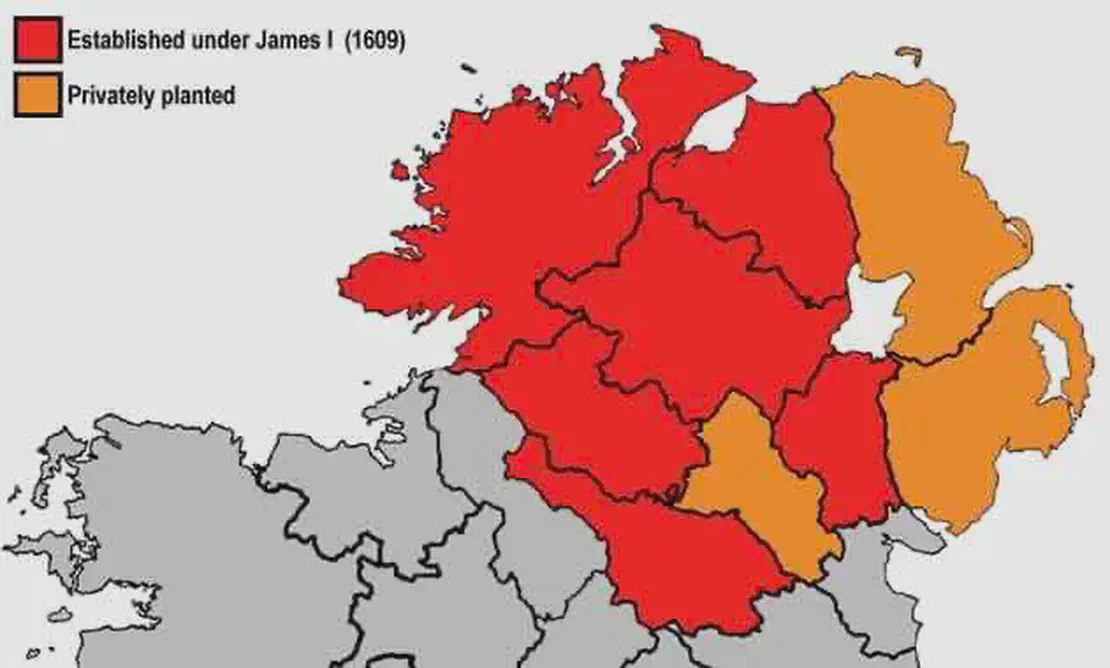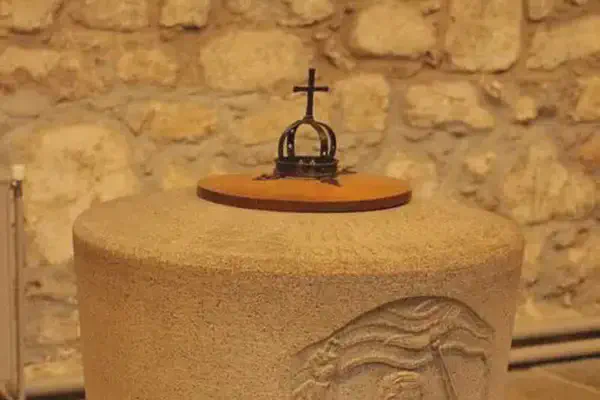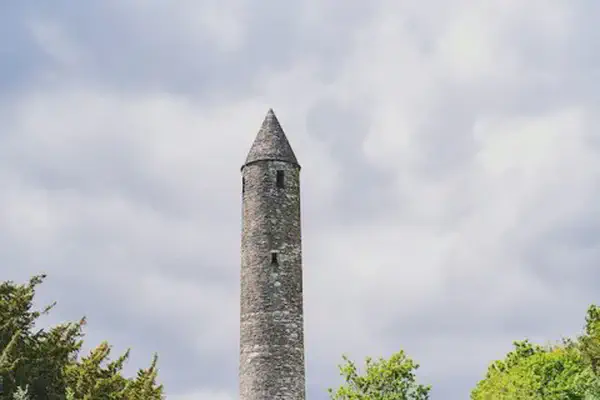On July 27, 1602 in Celtic History
Hugh o' neill's principal vassal, donnell ballagh o' cahan, submits to henry docwra

Donnell Ballagh O’Cahan (died 1627) was an Irish landowner in Ulster.
He a major Ulster landholder and has been described as “the last in a long line of chieftains” ruling the area between the River Bann in Belfast to the River Foyle in Derry, which he held off the O’Neill Earls of Tyrone as their liegeman
His main property was in Dungiven.
He also held Limavady.
Nine Year Wars
He spent much of the 1590s in armed rebellion with Tyrone against the crown.
In 1602 he secured Dungiven Castle from Donnell Ballagh O’Cahan, the principal vassal or ‘uriaght’ of Hugh O’Neill. This gave him control of most of what is now County Londonderry, and led O’Cahan to switch sides, depriving O’Neill of a large portion of his remaining force.
O’Cahan lands were “viciously ravaged” by Henry Docwra.
He joined forces with Mountjoy to finally crush Hugh O’Neill, who made his submission to Mountjoy at Mellifont in March 1603.
The military campaign is said to have been one of exceptional savagery, resulting in the death of thousands of Irish civilians.
About a third of O’Cahan’s lands in Londonderry were granted to Hugh O’Neill, Earl of Tyrone, who was also O’Cahan’s father-on-law.
A vassal of Hugh O’Neill, Earl of Tyrone, O’Cahan was frequently in rebellion alongside his lord in the closing years of the 16th century.
Betrayed by the English Crown
Although he did not go into exile with Tyrone, he claimed to have been betrayed by the English Crown, which he accused of failing to keep to an agreement over a large grant of lands.
O’Cahan’s arrangement with Docwra regarding his lands was agreed to by the government, but Chichester managed to persuade the government to repudiate the deal. O’Cahan, says Bigger, went “frantic”: his behaviour allowed Chichester to claim that O’Cahan had spoken and acted treasonably.
Treason
Arrested for treason, he was never brought to trial but was held captive in Dublin Castle. O’Cahan spent the rest of his life imprisoned in the Tower of London, until his death sometime around 1627.
Henry Docwra, 1st Baron Docwra of Culmore
Henry Docwra, 1st Baron Docwra of Culmore (1564 – 18 April 1631) was a leading English-born soldier and statesman in early seventeenth-century Ireland. He is often called “the founder of Derry”, due to his role in establishing the city
Related Content

Shane Patrick Lysaght MacGowan, lead singer of the Pogues, died

St Machar Day, patron saint of Aberdeen

Oíche Shamhna - Cetlic New Year Eve (Halloween)

ALBAN ELFED (Welsh Bardic name for autumn equinox)

Feast day of St. James

John Davie Burgess, King of the Highland Pipers, died at age 71.